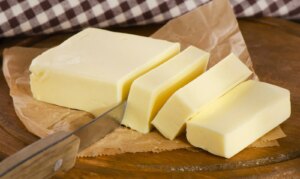A day after the Tirumala Tirupati Devasthanams (TTD) initiated legal action against the Tamil Nadu-based AR Dairy Food Private Limited for allegedly supplying adulterated ghee to the Sri Venkateswara Temple, the company has questioned the report on which the decision was based.
In his comments to a Tamil news channel Friday, Kannan, a quality control officer at the Dindigul-based AR Dairy Food, called the allegations “unsubstantiated”. His comments came a day after TTD Executive Officer J Shyamala Rao announced that samples from AR Dairy’s ghee had been found “highly adulterated”.
“We have been operational since 1998, and this is the first time such accusations have been made against us,” Kannan said.
According to him, AR Dairy runs its own procurement centres and employs advanced technology to test up to 102 quality parameters of milk within 32 seconds. “If the milk fails any quality test, it is rejected immediately,” he said.
He also claimed that AR Dairy was approved to supply ghee to TTD, a four-member expert team from the temple administration visited their plant to assess their capacity and quality control measures.

“Our ghee samples are first tested in national laboratories before being dispatched to TTD. Upon arrival, TTD’s own food safety officer checks the samples again,” Kannan said.
According to Kannan, AR Dairy holds ISO certification and follows strict quality protocols. None of the previous reports indicated any deviation in quality, he said, calling for a more transparent process of sample collection, such as recording a video to ensure accountability.
“These allegations, ranging from vegetable oil to animal fat adulteration, are severely damaging to our business. Moreover, the claim that fish oil was added is absurd; fish oil is more expensive than ghee. Any adulteration of this kind would immediately be detectable by smell alone,” Kannan said, adding that the company contributes to a “very small volume” of the total ghee used for TTD’s laddu production.
“We take immense pride in supplying ghee to TTD. For us, it’s not just business; it’s a blessing and honour,” he told the Tamil news channel.
The comments come a day after TTD’s Officer J Shyamala Rao said at a press conference that samples of ghee supplied by A.R. Dairy had been sent for testing following complaints about the declining quality of laddus, a popular temple offering, or ‘prasadam’.
“Out of 10 tankers of ghee provided by AR Dairy, four were found to be highly adulterated,” Rao said.
These remarks came days after Andhra Pradesh Chief Minister N. Chandrababu Naidu alleged at an NDA legislative party meeting that the previous YS Jagan Mohan Reddy-led government had allowed the use of animal fat and fish oil in the preparation of laddus.
When contacted, Dr. Sathish Kumar, the designated officer for the Food Safety Department in Chennai, refused to comment on the particulars of the case. However, he said there are standard protocols under the Food Safety and Standards Authority of India (FSSAI) for detecting food adulteration that are followed across the country.
“In Tamil Nadu, we adhere to the FSSAI guidelines strictly. When adulteration is suspected, we collect multiple samples from the same batch, with the presence of witnesses and the officials, and send them to a lab for testing. If the results show contamination, the supplier or the shop owner is notified and has 30 days to appeal,” Kumar said.
Asked about the possible use of animal fat or fish oil being used in ghee, Kumar said that both would be highly detectable through smell and taste. “If animal fat or fish oil were added, people unaccustomed to these substances would notice immediately. The smell of fish oil, in particular, is impossible to disguise,” he said.




